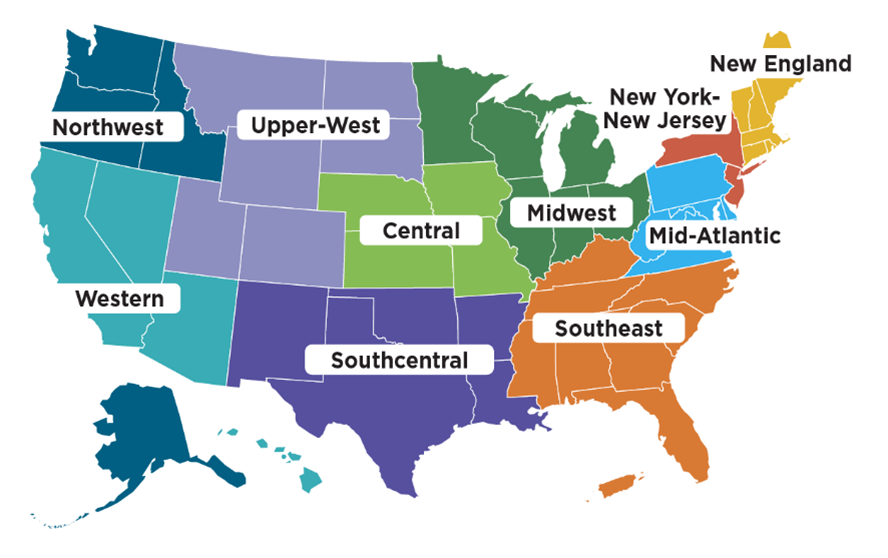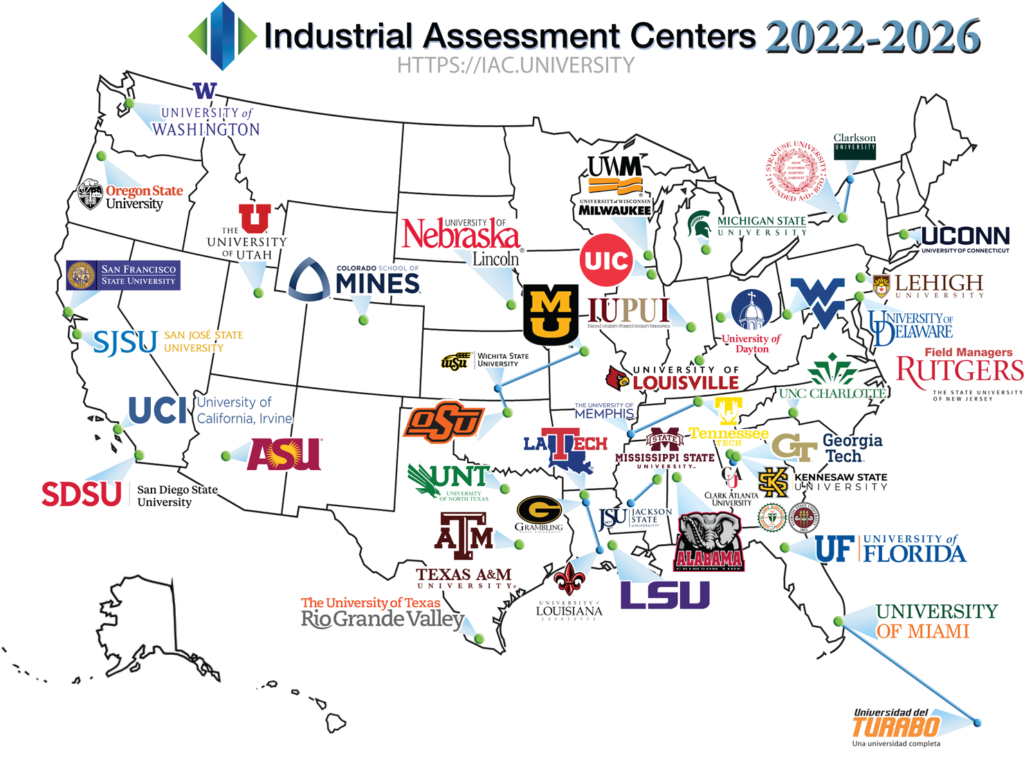Technical Assistance Resources
Below is a list of technical partners and cross-sector technology examples that state officials and facility managers can consult to explore industrial innovation strategies and solutions.
Onsight Energy Technical Assistance Partnerships (TAPs)
Ten TAPs advise industrial facilities throughout the country about the full range of on-site energy technologies. Interested companies should contact the TAP in their region. The map shows which TAPs serve each region, and contact information can be found here.
Read more about TAPs
Ten organizations comprise a network of TAPs funded by the US Department of Energy (DOE). These organizations help manufacturers adopt onsite energy technologies that expand industrial innovation, energy efficiency, and competitiveness.
TAPs can provide a broad range of technical assistance services in support of onsite energy project deployment, from the earliest stages of screening for multi-technology solutions to the end stages of post-installation operation. They can advise on a wide variety of technologies, including battery storage, combined heat and power (CHP), district energy, fuel cells, geothermal, industrial heat pumps, renewable fuels, solar photovoltaics, solar thermal, thermal storage, and wind power. The TAPs also host regular webinars that discuss a range of potential onsite energy solutions.
Facilities can use the map below to determine which TAP serves their region. Contact information for TAPs can be found here.

Industrial Training & Assessment Centers (ITACs)
Dozens of ITACs help small and medium-sized US manufacturers save energy, improve productivity, and reduce waste by providing no-cost technical assessments. Manufacturers can request an assessment from their nearest ITAC.
Read more about ITACs
There are more than 50 ITACs funded by DOE, most of which are based at universities. ITACs provide a range of technical assistance resources to small and medium-sized manufacturers. Facilities that receive an ITAC energy assessment are eligible to apply for grants to implement energy savings projects. Grants require a 50 percent cost share on the part of the manufacturer.
Manufacturers can consult a robust database of ITAC assessments to identify possible energy-saving ideas.
Where to find an ITAC?

- Thirty-six ITACs are located at universities and colleges. Professors and students from ITACs visit manufacturing facilities to conduct energy assessments to improve productivity and competitiveness, reduce waste, and save energy. ITACs typically identify more than $130,000 in potential annual savings opportunities for every manufacturer assessed.
- Seventeen ITACs are located at community colleges, union training programs, and trade schools.
- Five ITACs are recognized as Regional Centers of Excellence by DOE’s Office of Manufacturing and Energy Supply Chains with extensive technical assistance experience. These centers include:
- Great Plains Center of Excellence at Oklahoma State University (Stillwater, OK)
- Southeastern Center of Excellence at Georgia Tech University (Atlanta, GA)
- Mid-Atlantic Center of Excellence at Lehigh University (Bethlehem, PA)
- Gulf Coast Center of Excellence at Texas A&M University (College Station, TX)
- Western Center of Excellence at San Francisco State University (San Francisco, CA)
Technical Assistance Partnerships vs. Industrial Training & Assessment Centers: Which is the right fit?
Manufacturers can seek guidance from Technical Assistance Partnerships (TAPs) or Industrial Training & Assessment Centers (ITACs). TAPs have broader expertise, can advise facilities about all on-site energy technologies, and generally work with large manufacturers. Facilities considering a significant overhaul of their plant should discuss their plans with a TAP. Small and medium-sized manufacturers contemplating more modest efficiency improvements should contact an ITAC.
TAPs and ITACs are committed to getting manufacturers the help they need and can refer a facility to another technical assistance provider if they are not able to assist.
Technical assistance from the Department of Energy is always free.
Industrial Demonstration Program (IDP) Project Chart
Originally funded by DOE’s Office of Clean Energy Demonstrations, many of these grants were canceled by DOE in 2025, eliminating federal funding. Some projects may continue, as companies find ways to secure alternative funding sources. The projects offer cross-sector insights into technologies that can promote industrial innovation and strengthen American manufacturing.
